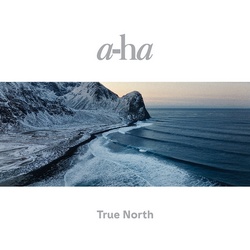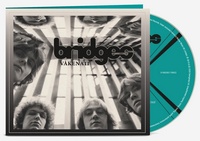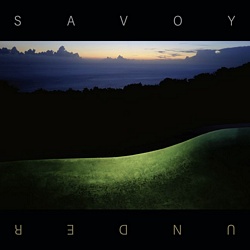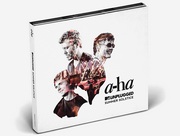Article: The tale of the stolen tapes
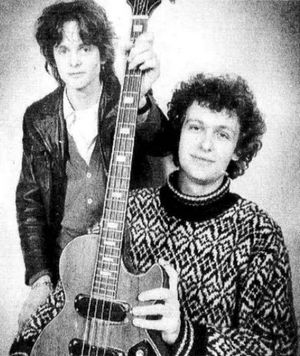
Pål Waaktaar and Viggo Bondi in February 1981, after getting the Gibson Les Paul bass guitar back.
In late December 1980, the four members of the band Poem – Pål Waaktaar, Magne Furuholmen, Viggo Bondi and Øystein Jevanord – were busy working on their new album at Sound Art Studio in Oslo.
Earlier that same year they had released the album Fakkeltog, but had since changed the name of the band from Bridges to Poem.
A departure from the heavily Doors-influenced Fakkeltog, this new album was going to sound a bit more commercial and upbeat. One of the songs they were working on was an early version of “The Soft Rains Of April”.
Working at the well-equipped Sound Art Studio was also a contrast to the less-than-ideal conditions at Octocon Studio, housed in the basement of an old factory, where they had recorded Fakkeltog.
But then someone broke into the studio and took the tapes and Viggo’s bass guitar. After a few weeks of trying to find out where the items could be, without result, Pål and Viggo decided to visit the newspaper Aftenposten:
“Tape thieves
(Aftenposten, 17 January 1981)
Two despairing members of the rock band Poem have made us a visit. For quite some time they have been working at Sound Art Studio in Skippergaten/Tollbugaten in Oslo, making recordings for an LP. Paid for all of it themselves. But then there was a break-in at the studio in late December and the thieves took the recording tapes!
“Those tapes couldn’t possibly be of any value to the thieves”, Pål Waaktaar says.
“The tapes themselves aren’t worth more than a few hundred kroner, and we’ll get that back on the insurance. But the recordings, the unfinished album, have cost us thousands that we’ve spent on studio time and work. Those tapes are worth so much more to us than the thieves. Can’t we please get them back?”
Poem was previously known as Bridges and has achieved some popularity. It would be sad if this turns out to be the fate of their first LP – disappeared.
“The thieves also took our bass guitar”, Pål says.
“And that bass is so special that it would be impossible to sell it or play it in public. It’s actually a Gibson Les Paul Recording Bass, and there are only a couple of those in this country.”
If the thieves, or someone with any passing knowledge of these things happen to read this and feel sorry for Poem, please send the tapes and the bass guitar to either Tor Marcussen at Aftenposten or to Pål Waaktaar, Havreveien 100, Oslo 6.“
A little over a month later, Aftenposten could bring an update on the story:
“A story with a happy ending
(Aftenposten, 28 February 1981)
Today we can bring you a happy news story! Around a month ago I was visited by a few members of the rock band Poem who wanted to try Aftenposten as a last resort. They had paid for a lot of hours in the studio themselves to make their first LP, but when they were almost finished with the recordings someone broke into the studio.
The unfinished tapes were stolen and bassist Viggo Bondi’s very special Gibson Les Paul Recording Bass was also taken. We’re talking items worth several thousand kroner and many, many hours of studio work that had disappeared.
We wrote about this story in our pop-column and asked our readers to be on the lookout for the bass, which is of a rare model. We were contacted by several readers via both telephone and letter, who pointed out private ads from various newspapers about guitars for sale. And as it happens, there was one reader who could bring us a particularly interesting tip.
Torkel Johansen from Halden, a musician himself, had seen a picture in a local newspaper where the Swedish Head of Customs at Svinesund was pictured with a bass guitar in his hand. It had been found in a car that some youngsters had driven across the border, together with guns and drugs. The car had been examined and the bass had been seized. Torkel recognized the bass model and called Aftenposten. We could then pass on the info to the police and the band Poem. Today Viggo has gotten his bass back! And the unfinished tapes have been returned to Poem.
Pål Waaktaar and Viggo Bondi would like to thank Torkel Johansen and the owners of Sound Art Studio, who were very helpful with favourable deals to get the recordings finished. Now there will be an LP after all and Viggo has been reunited with his valuable bass guitar.“
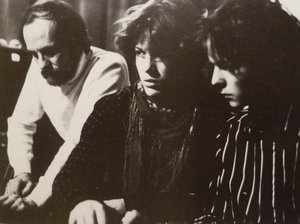
Magne and Pål with producer Svein Erichsen (left) in Sound Art Studio, 1981.
Despite this fortunate turn of events, conflicts within the band had started to arise in the meantime. Viggo and Øystein wanted to play more concerts, instead of just endless rehearsals and studio work.
And all the money that had been saved up for studio time were almost completely gone; Magne had spent thousands of kroner on a Korg synthesizer, while Paul had been to London and bought a guitar synth.
Putting the Poem album sessions on hold, Pål and Magne instead entered the studio alone to record the song “All The Planes That Come In On The Quiet”. Using their newly aquired instruments, it was an electronic production unlike anything they had done before. a-ha would later record several versions of that same song.
After the Poem tapes were returned, a few of the songs were completed and mixed. Magne had already designed the album cover. But the album would never be released.
In the summer of 1981, a certain 21-year old vocalist called Morten Harket auditioned for Poem. He had first met the members of Bridges back in 1979, and now they wanted to hear if he could be a potential new lead singer. They were impressed by his vocal abilities, but due to some unfortunate misunderstandings nothing more happened.
In late summer, the members of Poem played together for the last time. Viggo and Øystein were asked if they wanted to come along to London to try and get a record contract, but they didn’t have quite the same ambitions as Pål and Magne.
In November 1981, Pål and Magne therefore went to London alone, without a band and without any contacts in the music industry. All they had were 10.000 kroner, and lots of self-confidence and ambitious plans.
After putting ads in various music newspapers in London they ended up rehearsing with a harpist for a while. But nothing much happened.
In June 1982 they decided to return to Norway and try to meet up with Morten again. And the rest is history…
Translations by Jakob
Sources: newspaper archives and the book Så blåser det på jorden.

 For the latest updates,
For the latest updates,